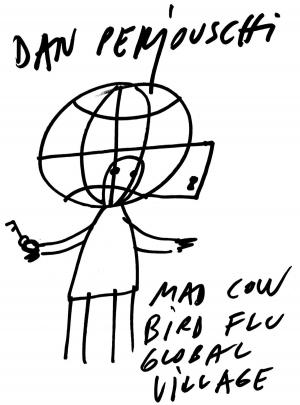Saint Paul
A Screenplay
Nonfiction, Art & Architecture, General Art, Art History, Religious, Religion & Spirituality, Philosophy, Political, Entertainment, Performing Arts| Author: | Pier Paolo Pasolini | ISBN: | 9781781682890 |
| Publisher: | Verso Books | Publication: | July 15, 2014 |
| Imprint: | Verso | Language: | English |
| Author: | Pier Paolo Pasolini |
| ISBN: | 9781781682890 |
| Publisher: | Verso Books |
| Publication: | July 15, 2014 |
| Imprint: | Verso |
| Language: | English |
Presented here for the first time in English is a remarkable screenplay about the apostle Paul by Pier Paolo Pasolini, legendary filmmaker, novelist, poet, and radical intellectual activist. Written between the appearance of his renowned film Teorema and the shocking, controversial Salò, or the 120 Days of Sodom, St Paul was deemed too risky for investors. At once a political intervention and cinematic breakthrough, the script forces a revolutionary transformation on the contemporary legacy of Paul. In Pasolini’s kaleidoscope, we encounter fascistic movements, resistance fighters, and faltering revolutions, each of which reflects on aspects of the Pauline teachings. From Jerusalem to Wall Street and Greenwich Village, from the rise of SS troops to the death of Martin Luther King, Jr, here—as Alain Badiou writes in the foreword—‘Paul’s text crosses all these circumstances intact, as if it had foreseen them all’.
This is a key addition to the growing debate around St Paul and to the proliferation of literature centred on the current turn to religion in philosophy and critical theory, which embraces contemporary figures such as Alain Badiou, Slavoj iek and Giorgio Agamben.
Presented here for the first time in English is a remarkable screenplay about the apostle Paul by Pier Paolo Pasolini, legendary filmmaker, novelist, poet, and radical intellectual activist. Written between the appearance of his renowned film Teorema and the shocking, controversial Salò, or the 120 Days of Sodom, St Paul was deemed too risky for investors. At once a political intervention and cinematic breakthrough, the script forces a revolutionary transformation on the contemporary legacy of Paul. In Pasolini’s kaleidoscope, we encounter fascistic movements, resistance fighters, and faltering revolutions, each of which reflects on aspects of the Pauline teachings. From Jerusalem to Wall Street and Greenwich Village, from the rise of SS troops to the death of Martin Luther King, Jr, here—as Alain Badiou writes in the foreword—‘Paul’s text crosses all these circumstances intact, as if it had foreseen them all’.
This is a key addition to the growing debate around St Paul and to the proliferation of literature centred on the current turn to religion in philosophy and critical theory, which embraces contemporary figures such as Alain Badiou, Slavoj iek and Giorgio Agamben.















